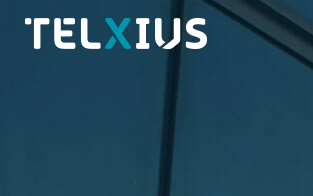The first two carriers to implement MEF’s LSO (Lifecycle Service Orchestration) Sonata APIs are AT&T and Colt Technology Services, paving the way for the seamless ordering of Ethernet connections across multiple carriers. As of today, AT&T can now place automated orders for Colt’s Ethernet Services using MEF’s LSO Sonata APIs. This enables AT&T to validate site addresses, check service availability, get a quote, and place automated orders on Colt’s network.
Traditionally, service providers use disparate, proprietary systems to manage different aspects of their networks.
MEF’s set of standardized LSO Sonata APIs creates a service-agnostic approach for inter-provider service automation that can be adopted and replicated across all carriers.
MEF describes the implementation of its Sonata APIs as a critical milestone in driving frictionless commerce across the global telecoms industry, removing manual steps, cutting cycle times, and minimizing handling errors.
 “There’s no doubt this will change how carriers interact and operate in the industry. Our interactions are now more cost-efficient, flexible and error-free,” said Roman Pacewicz, Chief Product Officer, AT&T Business. “We kicked off interoperability discussions and trials 3 years ago and gained important insights that will help create and refine industry standards under the guidance of MEF. The transformation of networks to a dynamic, on-demand, software-centric, cloud-based model opens up opportunities for everyone.”
“There’s no doubt this will change how carriers interact and operate in the industry. Our interactions are now more cost-efficient, flexible and error-free,” said Roman Pacewicz, Chief Product Officer, AT&T Business. “We kicked off interoperability discussions and trials 3 years ago and gained important insights that will help create and refine industry standards under the guidance of MEF. The transformation of networks to a dynamic, on-demand, software-centric, cloud-based model opens up opportunities for everyone.”
“Advancing interoperability is a key initiative of the ITW Global Leaders’ Forum, a network of the leaders from the world’s largest wholesale carriers, who convene to discuss strategic issues and collaborative activities with the aim of driving the next phase of growth for the industry,” said George Sloan, vice president, AT&T Global Connections and Alliance Management. “GLF has been supporting MEF LSO Sonata API work, which will enable network providers to more easily buy from and sell to each other and better meet the needs of our respective business customers.”
“Today’s announcement is the culmination of a long journey. This project started as a Proof of Concept (PoC,) and it is incredibly exciting to reach this stage,” said Mirko Voltolini, Head of Network On Demand, Colt. “We are proud to have been part of this process from the beginning. With the adoption of LSO Sonata APIs in our production network, we are improving efficiencies, reducing manual processes, and helping to improve how we all work together as an industry.”
“We are thrilled with the strong and growing industry support for LSO Sonata APIs for inter-provider service automation, said Nan Chen, President, MEF. “MEF especially appreciates the pioneering efforts of AT&T and Colt to implement LSO Sonata APIs in production environments. We couldn’t be more excited to see the creation and growth of this ecosystem that will support dynamic service automation moving forward.”
Traditionally, service providers use disparate, proprietary systems to manage different aspects of their networks.
MEF’s set of standardized LSO Sonata APIs creates a service-agnostic approach for inter-provider service automation that can be adopted and replicated across all carriers.
MEF describes the implementation of its Sonata APIs as a critical milestone in driving frictionless commerce across the global telecoms industry, removing manual steps, cutting cycle times, and minimizing handling errors.
 “There’s no doubt this will change how carriers interact and operate in the industry. Our interactions are now more cost-efficient, flexible and error-free,” said Roman Pacewicz, Chief Product Officer, AT&T Business. “We kicked off interoperability discussions and trials 3 years ago and gained important insights that will help create and refine industry standards under the guidance of MEF. The transformation of networks to a dynamic, on-demand, software-centric, cloud-based model opens up opportunities for everyone.”
“There’s no doubt this will change how carriers interact and operate in the industry. Our interactions are now more cost-efficient, flexible and error-free,” said Roman Pacewicz, Chief Product Officer, AT&T Business. “We kicked off interoperability discussions and trials 3 years ago and gained important insights that will help create and refine industry standards under the guidance of MEF. The transformation of networks to a dynamic, on-demand, software-centric, cloud-based model opens up opportunities for everyone.”“Advancing interoperability is a key initiative of the ITW Global Leaders’ Forum, a network of the leaders from the world’s largest wholesale carriers, who convene to discuss strategic issues and collaborative activities with the aim of driving the next phase of growth for the industry,” said George Sloan, vice president, AT&T Global Connections and Alliance Management. “GLF has been supporting MEF LSO Sonata API work, which will enable network providers to more easily buy from and sell to each other and better meet the needs of our respective business customers.”
“Today’s announcement is the culmination of a long journey. This project started as a Proof of Concept (PoC,) and it is incredibly exciting to reach this stage,” said Mirko Voltolini, Head of Network On Demand, Colt. “We are proud to have been part of this process from the beginning. With the adoption of LSO Sonata APIs in our production network, we are improving efficiencies, reducing manual processes, and helping to improve how we all work together as an industry.”
“We are thrilled with the strong and growing industry support for LSO Sonata APIs for inter-provider service automation, said Nan Chen, President, MEF. “MEF especially appreciates the pioneering efforts of AT&T and Colt to implement LSO Sonata APIs in production environments. We couldn’t be more excited to see the creation and growth of this ecosystem that will support dynamic service automation moving forward.”





















